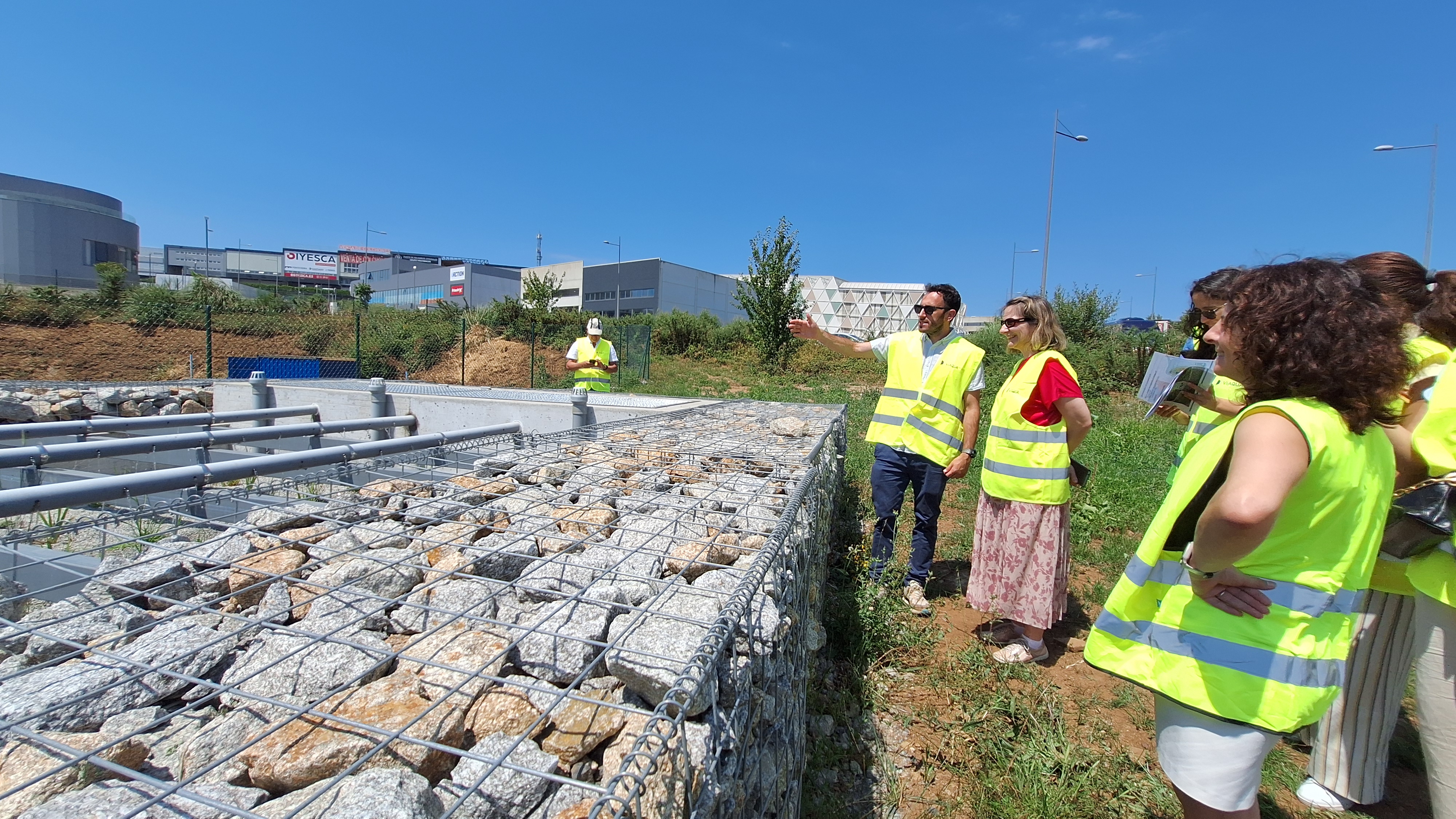The General Assembly of the WATERUN project ans the second project review were held on 8 and 9 of July 2025, at VIAQUA’s premises in Santiago de Compostela, Spain. These important meetings marked 36 months of collaboration among international partners, local stakeholders, and representatives from the European Commission.
Over two days of intense and constructive discussions, participants reviewed the progress made so far and reflected on how WATERUN’s innovative solutions contribute to addressing the complex challenges of diffuse pollution from urban runoff.
A collective effort towards smarter urban water management
On Wednesday, 9 July, Bertrand Vallet (DG RTD, European Commission) opened the review:
“The waterun project has many actions in relation with the european Water Resilience Startegy.”
This perspective set the tone for fruitful exchanges throughout the meeting. The partners presented updates on each Work Package and discussed the main achievements and lessons learned. As a reminder, the work package are co-creation process, monitoring, modelling tools, performance and assesment of GI, risk management tools and guidance, communication and dissemination and finnaly coordination and managment.
The participants also addressed key questions raised by the project officer and the 2 reviewers, such as:
- How have local stakeholders been selected? (WP1)
- Will limit values for laboratory analyses be defined? (WP2)
- Who will be the final users of early warning systems? Will citizens have access? (WP5)
Turning knowledge into practical solutions
WATERUN’s technological developments were also highlighted:
- Smart sensors for real-time pollutant detection
- Simulation tools to optimize Nature-Based Solutions (NbS)
- Validation at three pilot sites in Aarhus, Santiago, and Amman
These tools aim to support the transition towards Water-Sensitive Urban Design (WSUD) and offer concrete pathways for cities to enhance their resilience against climate-induced water challenges.
Looking ahead
Salvatore Martire (European Commission) conclude :
“The progress is tangible. The consortium should focus the final version of the technical report on activities, in a narative way. You should also improve the consistency of the report.»
Beyond technical presentations, the General Assembly offered valuable moments of networking, including a visit to the Santiago pilot sites, and a convivial dinner that strengthened collaboration between partners.
Finally, WATERUN’s visibility continues to grow: a good path for the final year of the project!
